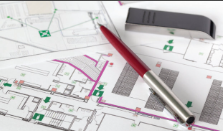 Homeowner groups play a big part in preserving and improving property values, ensuring community wellness, and protecting residents’ interests. In Vermont, where postcard-perfect scenery meets the challenges of unpredictable weather and natural disasters, these groups face unique risks and need a proactive, professional approach. A qualified engineer can impact a group’s ability to reduce insurance costs, effectively manage risk, and speed up recovery from unforeseen disasters.
Homeowner groups play a big part in preserving and improving property values, ensuring community wellness, and protecting residents’ interests. In Vermont, where postcard-perfect scenery meets the challenges of unpredictable weather and natural disasters, these groups face unique risks and need a proactive, professional approach. A qualified engineer can impact a group’s ability to reduce insurance costs, effectively manage risk, and speed up recovery from unforeseen disasters.
CUT INSURANCE COSTS
One main advantage of having an engineer is the chance to cut insurance costs. Insurers figure risk based on things like how sturdy buildings are, their compliance with safety codes, and how they proactively manage risk. An engineer can thoroughly check the community’s infrastructure, spot potential weak spots, and suggest affordable ways to lower risks. For instance, in areas with heavy snowfall, an engineer might recommend reinforcing roofs to handle accumulated snow weight. By doing these kinds of things, a homeowner group shows insurers they’re committed to reducing risk, which can lead to lower premiums.
CONTROLLING THREATS
Effective risk management is key for the long-term sustainability of a home owner association (HOA), especially in areas prone to natural disasters like hurricanes, flooding, and winter storms. Professional engineers offer a lot of expertise to help HOAs spot and reduce risks before they become big issues. For example, an engineer can evaluate the drainage systems in a community and suggest improvements to prevent flooding when there’s heavy rain. By tackling potential problems ahead of time, an HOA not only protects residents’ well-being but also lowers the chance of property damage, meaning fewer insurance claims and lower costs. Additionally, professional engineers can help HOAs comply with local building codes and regulations. Making sure structures meet or exceed safety standards boosts overall community safety while also reducing legal and financial risks from code violations.
RECOVERING FROM DISASTERS
If disaster strikes, whether from nature or building failure, a professional engineer is invaluable for the HOA. Their expertise includes quickly responding and planning recovery, not just evaluating and preventing risks. In New England, where winter storms can cause lots of damage, having an engineer familiar with the unique local challenges is critical. From assessing structural damage to coordinating repairs, an engineer can streamline recovery, minimize downtime, and help residents regain normalcy faster.
EMERGENCY RESPONSE HANDBOOK
Getting ready ahead of time is really important for recovering after a disaster hits. HOAs can benefit from putting together an emergency response handbook (ERH) before disaster strikes. This ERH, created with input from an engineer, would layout all emergency protocols, important contact info, and step-by-step instructions for both residents and HOA management to follow.
The ERH could contain specifics on items such as the development’s infrastructure, evacuation routes in an emergency, meeting points, communication protocols, and temporary housing plans. It may also contain a list of all emergency contractors in the area, in case broken windows or roofs need to be quickly boarded up. Equally important, vetting contractors ahead of time and creating relationships with them will help to avoid being scammed. You want to make sure contractors are licensed, insured, and possess the skills and means to quickly repair any damage.
The ERH should be reviewed twice per year and updated at least once per year by reaching out to all of the sub contractors and emergency personnel to ensure they are at the ready. By thinking about this upfront, an HOA can not only recover faster, but also help residents feel safer by knowing what to do.
Getting an engineer involved is a smart investment for HOAs – on top of helping right away by lowering insurance costs and reducing risks, these experts are key for bouncing back quickly after disasters happen. Following their advice, HOAs can make their communities better able to handle emergencies and ensure residents’ wellbeing over the long haul. Putting together an ERH with an engineer makes the community even more prepared to respond to crises and recover efficiently. When facing unpredictable challenges, having a professional engineer on your side is critical for HOAs trying to build safer neighborhoods.
Written by Andrew Dudka, President of Criterium L&D Engineers & Criterium Dudka Engineers
Published in Condo Media
